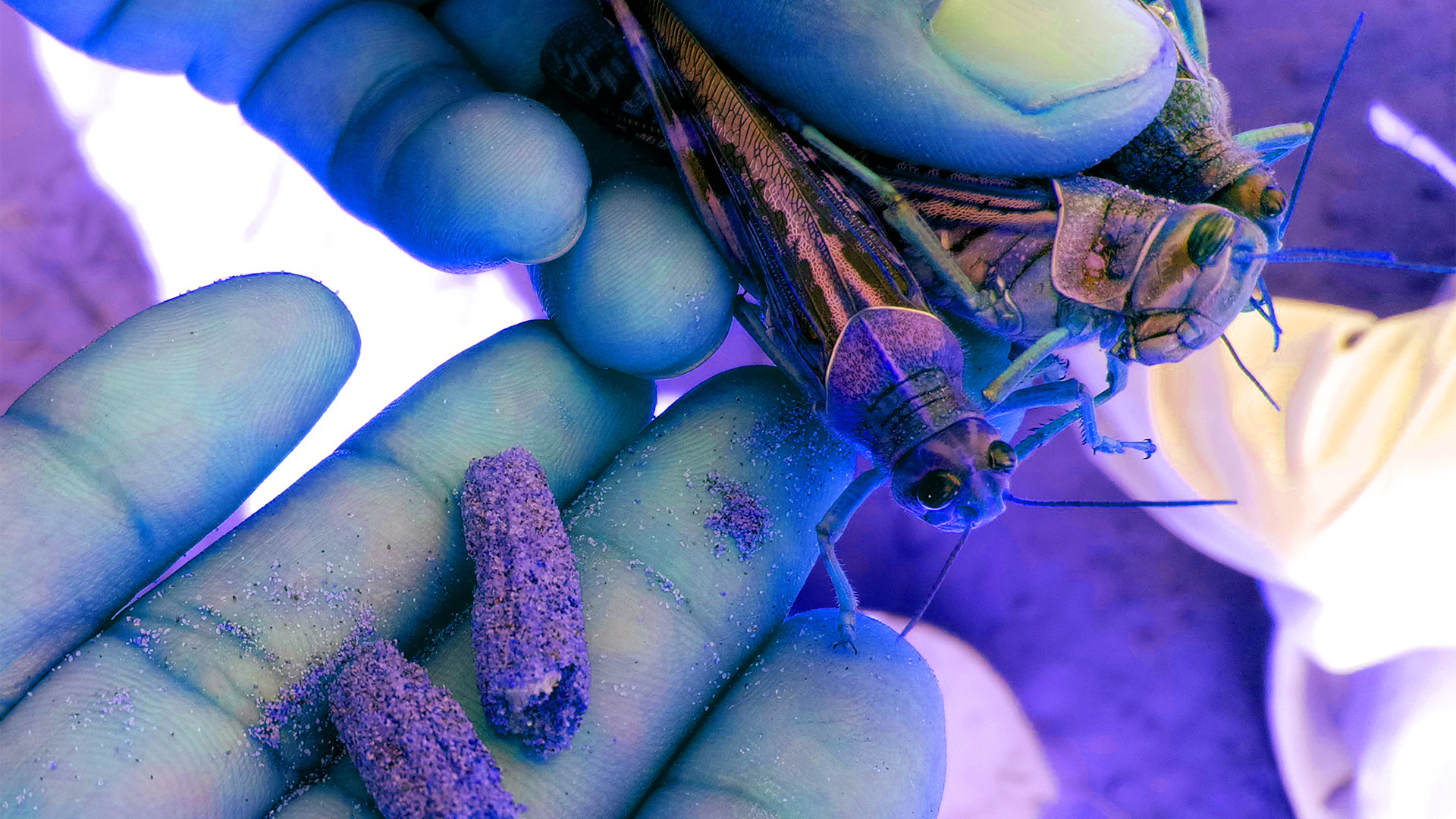Pest-Proof, Climate-Ready, Resilient Agriculture
Facing Pests Amid a Pandemic
Early in 2020, Pakistan saw the largest locust infestation in 25 years. Swarms of these agricultural pests migrated from neighboring Iran and destroyed large fields of cotton, wheat, maize, and other crops. The government declared a national emergency in February 2020 and launched a national surveillance and control operation.
At about the same time, the first case of COVID-19 was reported in Sindh province. The government then imposed partial lockdowns in the three provinces of Balochistan, Khyber Pakhtunkhwa, and Punjab. Having many infected people, Sindh was placed in total lockdown by the provincial government.
The twin crises of the COVID-19 pandemic and the locust outbreak in Pakistan have greatly affected agriculture and stalled the economy.
Pakistan’s economic growth for 2019–2020 was projected at 3.2% but subsequently reassessed at 0.4%. Crop damage prompted Pakistan to miss its production target for wheat by about 2 million tons, leading the country to import wheat for the first time since 2014. Low yields resulted in price increases for wheat and other food grains. Loss of incomes and remittances reduced purchasing power and induced food security risks.
Compounding these issues, the pandemic lockdowns have limited farmers’ access to wholesale markets, diminished available agricultural produce in the local markets, and generally weakened food supply chains.
The situation has the makings of a massive food shortage and widespread hunger.
Climate-Responsive Technology Solutions
In December 2020, ADB approved a project to help Pakistan improve its resilience against locust attacks and other disasters by enhancing its agriculture sector and food security system. The project is financed by ADB’s Technical Assistance Special Fund, the Climate Change Fund, and the Netherlands Trust Fund under the Water Financing Partnership Facility.
“The project is offering climate-ready, technology-based solutions that will enhance data collection, pest management, and crop production to increase the resilience of Pakistan’s agriculture sector,” ADB senior natural resources specialist and project officer Noriko Sato said.
The project is demonstrating information and communication technology (ICT) and remote-sensing technologies for crop data collection to provide more reliable and timely information on agriculture production, commodity prices, and the supply chain. Along with surveys conducted across the provinces to collect sample data on the impacts of COVID-19 lockdowns and locust infestation on farming households and commodity price fluctuations, crop data collection can prove useful for more effective policy making and real-time decision-making in emergency situations caused by natural hazards and shocks.
The project is pilot-testing biopesticides, ICT-supported drones, and other pest management technologies and practices to solve the locust problem. Government officials are being trained to apply international best practices in the safe and environment-friendly management of locusts and other pests.
Advances in seed development and crop production are also being explored while upgrading women’s skills in climate-adaptive and disaster-resilient crop seed cleaning and storage. The project is also helping rural communities increase their resilience and capacity to combat the impacts of climate change and natural hazards through training on best practices in locust and pest identification and control in the field as part of early warning actions.
The project also supports the Ministry of National Food Security and Research in conducting a diagnostic assessment of food security and agriculture in consultation with various stakeholders.
Despite the continuing impacts of the COVID-19 pandemic and locust infestation on agriculture and food supply chains, the project has already begun clearing a path toward a green, inclusive, and resilient recovery for Pakistan.”
– Noriko Sato, ADB senior natural resources specialist and project officer
Green, Inclusive, and Resilient Recovery
The diagnostic assessment of food security and agriculture, once finished, can prove useful for formulating policies on key priorities, such as essential commodity production and forecasting, real-time monitoring of availability and pricing of commodities, and financial inclusion opportunities for small farmers. It will strengthen the agricultural value chain and increase the resilience of the agriculture sector.
On 28 January 2022, ADB and the Ministry of National Food Security and Research of the Government of Pakistan held a joint knowledge-sharing webinar to discuss international best practices on locust and pest management. More than 100 participants including the Federal Minister of the Ministry of National Food Security and Research, representatives of federal and provincial governments, and researchers shared insights on smart early warning systems, application of safe and sustainable pesticide, and potential use of drone technologies in Pakistan. Experts from the Australian Plague Locus Commission, the Food and Agriculture Organization, and other international and national experts showcased advanced and sustainable locust and pest management technologies. The webinar also received contributions from the Netherlands Trust Fund under the ADB-administered Water Financing Partnership Facility.
While much is still to be done in disseminating the new technologies and practices to beneficiaries, including government and rural communities, the project has been pushing onward. It is expected to conclude in November 2022.
Sato said, “Despite the continuing impacts of the COVID-19 pandemic and locust infestation on agriculture and food supply chains, the project has already begun clearing a path toward a green, inclusive, and resilient recovery for Pakistan.”
Cost
$1.5 million
- ADB Resources $1.3 million
Cofinancing Partner
- Netherlands Trust Fund (Technical Assistance) $200,000
Dates
Approval Date 9 December 2020
Signing Date 9 December 2020
Completion Date 30 November 2022



